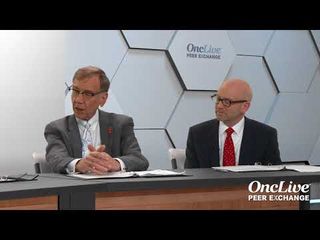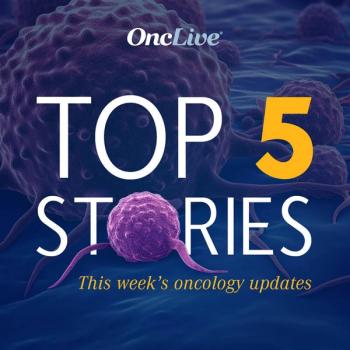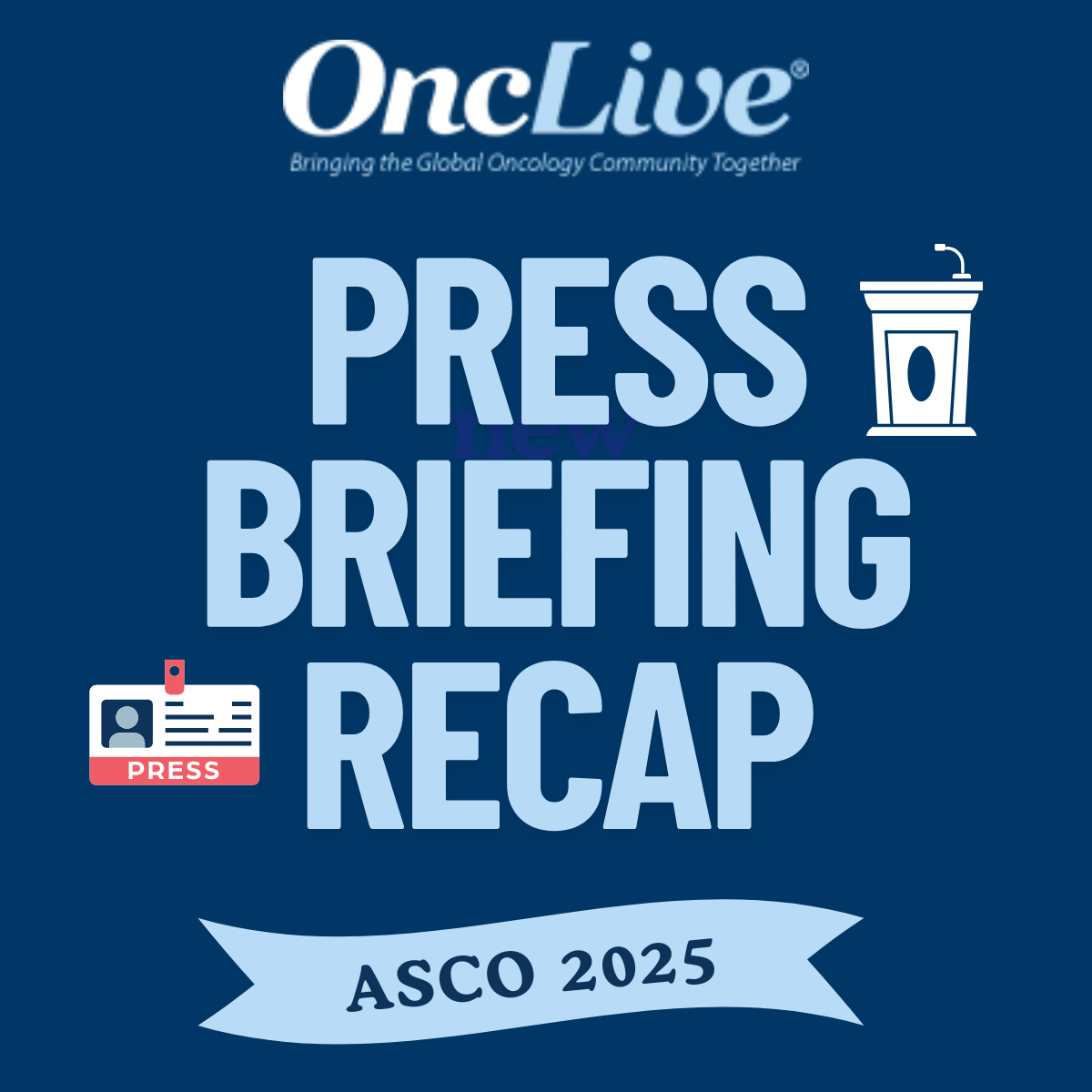
Precision Medicine in Oncology®
Latest News
Video Series

Latest Videos
CME Content
More News

Combinations targeting PI3K/AKT/mTOR and MAPK/ERK pathways are under investigation to improve outcomes in patients with endometrial cancer.

The top 5 OncLive videos of the week cover insights in ovarian cancer, prostate cancer, chronic lymphocytic leukemia, and breast cancer.

The FDA has approved options in non–small cell lung cancer, advanced anal cancer, and pheochromocytoma or paraganglioma, and more from OncLive this week.

The FDA approved telisotuzumab vedotin for pretreated advanced NSCLC harboring high c-MET protein overexpression.

David S. Hong, MD, discusses the FDA’s full approval of larotrectinib for patients with solid tumors harboring an NTRK gene fusion.

Alberto Chiappori, MD, discusses the inclusion of patients with CNS metastases in the eXALT3 trial of ensartinib in ALK-positive NSCLC.

Renier Brentjens, MD, PhD, discusses the current landscape of CAR T-cell agents in patients with solid tumors.

The top 5 OncLive videos of the week cover insights in myelodysplastic syndrome, lung cancer, hepatocellular carcinoma, colorectal cancer, and ovarian cancer.

A doublet is approved for KRAS-mutated ovarian cancer, T-DXd followed by THP improves pCR rates in HER2+ breast cancer, and more from OncLive.

Novel STAT3 Inhibitor TT1-101 Is Safe and Shows Antitumor Activity in R/R HCC and Other Solid Tumors
The STAT3 inhibitor TT1-101 generated confirmed partial responses among patients with relapsed/refractory HCC and other solid tumors.

FDA Approves Avutometinib Plus Defactinib for KRAS-Mutated Recurrent Low-Grade Serous Ovarian Cancer
The FDA has granted accelerated approval to avutometinib plus defactinib (Avmapki Fakzynja) for select KRAS-mutated recurrent low-grade serous ovarian cancer.


Alexis Chidi, MD, PhD, MSPH, emphasizes the importance of having more available targeted therapies and explains NSCLC screening eligibility criteria.

The AI-driven companion diagnostic device Ventana TROP2 (EPR20043) RxDx has received FDA breakthrough device designation in NSCLC.

The FDA issues a CRL to a glioma imaging agent, an sBLA seeking approval of an epcoritamab triplet in follicular lymphoma is planned for submission, and more.

A priority review was granted to zurletrectinib in China for the treatment of patients with NTRK gene fusion–positive advanced solid tumors.

Sophie Paczesny MD, PhD, discussed the ability of ST2 to predict the risk of developing aGVHD or death following transplant.

Here is your snapshot for all therapeutic options that were cleared by the FDA in April 2025 spanning tumor types.

Early complete clearance of ctDNA was linked with clinical responses to daraxonrasib in RAS-mutant advanced non–small cell lung cancer.

Olaparib plus pembrolizumab was safe and effective in HRR gene–mutated and/or HRD-positive advanced tumors.

Benjamin Herzberg, MD, discusses unanswered questions regarding the role of KRAS inhibitors for patients with non–small cell lung cancer.

Ecaterina Dumbrava, MD, discusses early findings of rezatapopt in patients with solid tumors harboring TP53 Y220C mutations.

Eunice Wang, MD, provides an overview of currently available AML treatments and highlights the importance of mutational sequencing strategies.

China’s NMPA has accepted an sNDA for review, seeking the approval of repotrectinib for advanced solid tumors harboring NTRK fusions.

The top 5 OncLive videos of the week cover insights in multiple myeloma, AL amyloidosis, myelofibrosis, breast cancer, and sarcoma.




















































